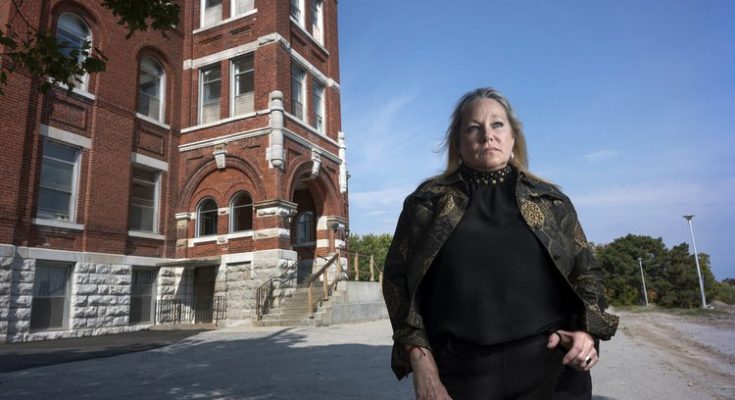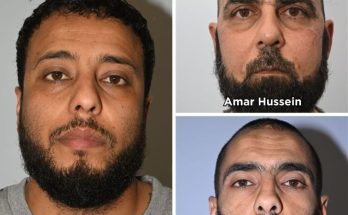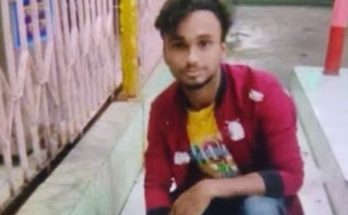‘Unloved: Huronia’s Forgotten Children’ is partly a detective, partly a social-historical documentary film in which the director, writer, and executive producer, Barri Cohen is also a winner of 3rd prize in the Rogers Audience Award for Best Canadian Documentary of 2022 Hot Docs Canadian International Documentary Film Festival. Barri unveils the truth, in this documentary film about Alfie and Louis, her two long-dead half-brothers. Though their lives were cut short, their story reflects the immense tragedy of the Western World’s 20th-century abusive and cruel treatment of vulnerable intellectually disabled children and youth. A question that preoccupies the film is How do we allow ourselves to dehumanize the most vulnerable people in our care?
During showcasing the documentary film ‘Unloved: Huronia’s Forgotten Children’ at the Canadian International Documentary Festival in Toronto during the first week of May, Asha Bajaj of Canadian Media had an opportunity to learn through dialog with Barri Cohen, the truth about the abuse and humiliation of the most vulnerable physically and mentally challenged children and youth in Huronia Regional Centre, a now-closed hospital and home for children with developmental disabilities.
Following is the extract of the interview:
Asha to Barri Cohen: When did you learn from your father about your half-brothers Alfred and Louis, who were dropped off as toddlers at the Huronia Regional Centre? What was your immediate reaction? when you
Barri: I learned about my two half brothers in 1973 from my Dad who was driving at that time to pick up some grocery items for my Mom who was in the hospital. My dad told me that he had two sons from a first marriage Alfred and Louis. I was devastated and heartbroken. For most of my early life, I only knew my immediate family to consist of my parents, two brothers, and half-sister, Adelle Perrin (Nee Cohen). My dad added that Alfie died in 1973 at the Huronia Regional Centre where he was dropped off as a toddler in the 1950s. But regarding Louis’s death, Dad lied to me at that time that he had died at home when he was 2 years old. I only came to know the truth in 2017 that Louis was also sent to Huronia Regional Centre where he died in 1957 at the age of 4.
How were you able to unveil the truth of how they were treated and their deaths?
In the wake of a successful class-action lawsuit, of which Adelle, my half-sister alerted me, I was finally able to unveil the half-truths and secrets around my two now-deceased siblings through the patients’ files, coroners’ reports, family members and friends, and various testimonials, stories, and memories of the institution’s survivors.
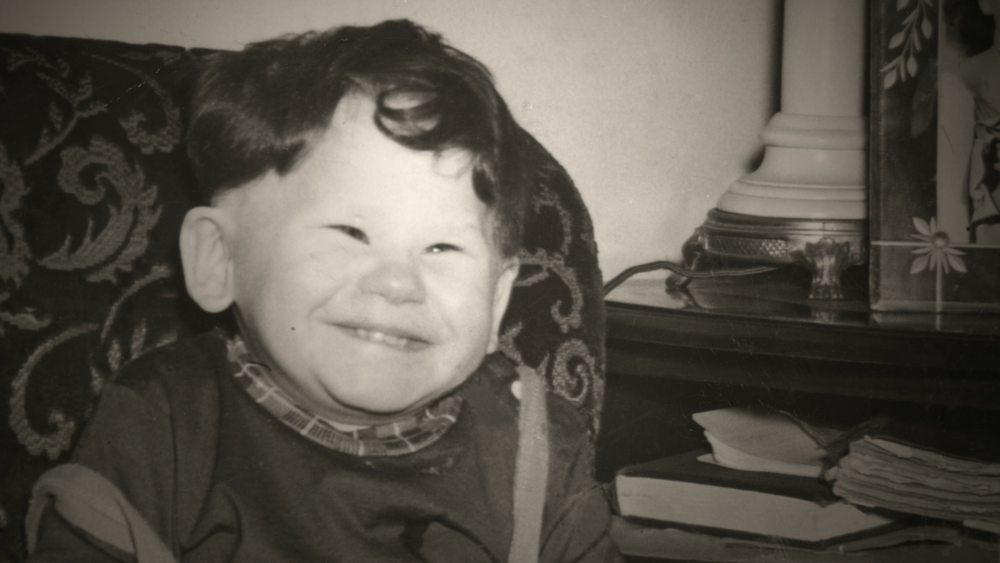
Until I undertook to make Unloved, we didn’t realize Louis’ grave was a mystery. Its place is unknown and unmarked. I have had the great privilege of spending time with incredible survivors since I undertook the research and filming in 2014. Adele was determined to accompany me, during the filming of the first tour inside Huronia in 2014. Adele felt a haunting sadness and pain while walking through the halls where her brothers once lived and ultimately died. Speaking to the families and survivors of the center, the shocking stories of abuse, humiliation, and trauma suffered by my half-brothers’ were unveiled to me. These interviews also provide hope and light, as the survivors support each other in their battle for recognition and healing.
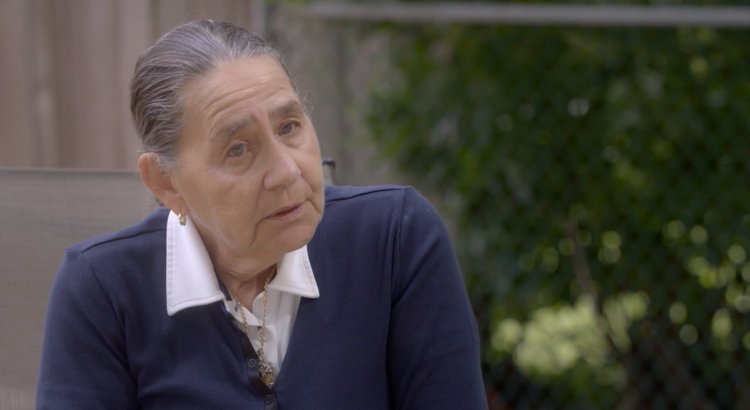
The film took seven years to complete. What challenges did you encounter to reveal the truth behind the system of the institution which is now closed?
The main challenge was the funding for the production. There was the problem to convince the funding authorities to acknowledge how important this story was. Still, other challenges that I faced were the litigation of my family story, and limited access to the building of the institution to get first-hand knowledge of the surroundings and the circumstances. I am very grateful to Canada Media Fund,
Rogers Documentary Fund, Ontario Creates with the Assistance of The National Film Board of Canada and The Canadian Film or Video Production Tax Credit which enabled me to unveil the harsh realities of the institution.
During the question-answer sessions, I learned that nobody who worked there would admit that the children were treated badly. How were you able to contact the survivors?
Some people who participated in the film admitted that these vulnerable people were humiliated and abused. I met the survivors when I was on tour in 2014 to form a group for my film. I had to confine myself within Canada due to Covid-19 infection restrictions. I spoke with one physician, a surgeon who pointed out that some of the medical staff were not top-notch but had issues, and some of them were alcoholics. Health workers of the Institution revealed to me the unhygienic conditions under which they were forced to exist, like the toilet seats in one washroom without any barrier between each. The workers in that institution were fully supported by their union.
Now coming to the healing process, I know it is a lifelong process but have you been feeling a little better after the unveiling of the truth of this institution and the legal actions to which it was subjected to?
Yes, the healing process is working for me. But I am more concerned about my half-sister, Adelle Perrin (Nee Cohen) who was Alfie’s and Louis’s sister.
Adelle was haunted by the place where Alfie was confined. He is picturized how he used to gaze outside of the window to get some attention was revealed to me His death was due to the negligence of medical staff without proper diagnosis of his symptoms and infections.
This story, though heartbreaking is redemptive as it moves from a highly personal and painful family secret to an investigation of hidden truths about cruelty and ugliness against vulnerable children by an entire government-enabled system.
Some of the people who supported me with the truths of the institutions that led to my healing process were Kate Rossiter, Ph.D., Chair, Department of Community Health, Wilfrid Laurier University, Ontario / Co-Author, Punishing Conditions: Institutional Violence and Disability (Routledge, 2019), one of the lead researchers who created an extensive digital archive that captures the history and legacy of the Huronia Regional Centre. As the principal investigator on the Recounting Huronia research project, Rossiter also created and maintained several survivor-led narratives, including the Huronia Speakers Bureau and a cabaret performance about Huronia.

Yet another person was Mitchell Wilson, Disability Advocate / Remember Every Name Member and Researcher who researched the history of Huronia Regional Centre, going through hundreds of government records and historical newspaper articles for five years.
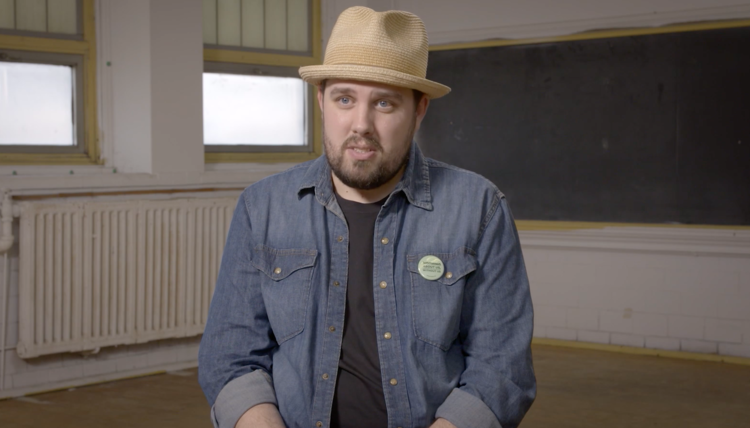
He has also been talking to survivors and former staff members which led him to have a deep understanding of day-to-day life at the institution and of the facility’s role in Ontario’s eugenics movement. The survivors and the survivors they speak for are resilient and brave, and I’m grateful they chose to share their stories and remind us about how vulnerable we all still are living in conditions structured by failures of love, compassion, and decency
What are your future plans for the betterment of the condition of humans who are physically or intellectually challenged?
I plan that this film should be showcased on Television so that more and more people are aware of what happened at the Huronia Regional Centre with the vulnerable youth and children. My intention is to portray a reality that will hopefully resonate with audiences’ recognition of the extent of dehumanization of people continues to this very day. I want to think of a future where the families of children and youth with physical and intellectual disabilities are properly funded by the government so that these children remain in their communities with dignity, independence, and respect.
.

